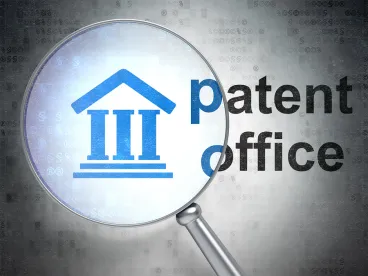The US Court of Appeals for the Federal Circuit confirmed a district court’s analysis under the Administrative Procedure Act (APA) of three challenges to the US Patent and Trademark Office (PTO), affirming the district court’s lack of jurisdiction for the first two challenges and a time-bar for the third. Odyssey Logistics & Tech. Corp. v. Iancu, Case No. 19-1066 (Fed. Cir. May 22, 2020) (Hughes, J.). Essentially, Odyssey brought the first two challenges too early, and the third challenge too late.
Odyssey disagreed with certain PTO decisions and challenged their propriety in the US District Court for the Eastern District of Virginia. The district court dismissed the case, finding that it lacked subject matter jurisdiction as to the first two challenges, and that a six-year statute of limitations under 28 USC §2401 prevented it from hearing the third challenge. The district court thus found that Odyssey failed to state a claim. Odyssey timely appealed.
The first challenge involved a first patent application that had previously been appealed to the Federal Circuit over procedural disputes, and more recently to the Patent Trial and Appeal Board (PTAB) on the merits. The PTAB reversed the examiner’s rejections, but the Technology Center (TC) director issued an examiner’s request for rehearing. The request argued that the PTAB had applied an incorrect version of 35 U.S.C. §102(e) to determine whether a reference qualified as prior art, and requested clarification as to which claim rejections were reversed. Although Odyssey had opportunities to respond before and after the PTAB received the request, Odyssey merely objected to the procedural propriety and not the merits. Only after Odyssey’s petitions objecting to the rehearing procedure were dismissed and requests for reconsideration were denied did Odyssey make arguments on the merits “under protest.” Odyssey filed the challenge instead of waiting for the PTAB decision.
As to the second challenge, after a second patent application was finally rejected, Odyssey appealed the claim rejections to the PTAB, but also filed a petition demanding that the examiner make certain evidence part of the written record and supplement his responses to Odyssey’s arguments with additional explanation. The examiner declined to include the additional evidence, but did further explain his disagreement with Odyssey’s arguments. Since the examiner had responded, the TC director dismissed the petition as moot, and the examiner filed his answer to Odyssey’s appeal brief. Although the examiner did not designate any new grounds of rejection in the answer, Odyssey believed that it included new grounds and filed another petition, requesting that the TC director designate certain portions of the examiner’s answer as new grounds. The TC director dismissed the petition, finding that the portions identified were not new. Before filing a reply to the examiner’s answer, Odyssey challenged the dismissal of the petition in court.
Third, Odyssey filed a “facial” challenge to the PTO’s 2011 amendments to its rules of practice in ex parte appeals, which were first published as a notice of proposed rulemaking in the Federal Register in November 2010. The amendments were published in final form in November 2011 and apply to all ex parte appeals filed on or after January 23, 2012.
Upon appeal, the Federal Circuit first addressed whether Odyssey satisfied the APA’s finality requirement (5 U.S.C. § 704). Supreme Court precedent dictates that an action is considered final under the APA if it both (1) marks the consummation of the agency’s decision making process and (2) is one by which rights or obligations have been determined, or from which legal consequences will flow.
Accordingly, the Federal Circuit found that until the PTAB issued its rehearing decision as to the first application or denied Odyssey’s arguments for exceeding the permissible scope of a reply brief as to the second application, the PTO had not consummated its decision making process, nor had Odyssey’s rights or obligations as to the applications been determined. Although the PTAB reversed the examiner’s rejection on appeal, it could reconsider its decision as to the allowance of the claims since the examiner had requested rehearing, and Supreme Court precedent holds that a rehearing request renders an underlying order non-final for purposes of judicial review. If the PTAB had abused its authority by unlawfully withholding or unreasonably delaying a decision without adequate reason or justification (which it had not), the APA would permit premature recourse to the courts, but otherwise Odyssey would have to wait until after the PTAB’s decision for any appeal.
As to the third challenge, Odyssey recognized the six-year statute of limitations under 28 U.S.C. § 2401 to facially challenge agency regulations, but argued that the effective date governs. However, the statute of limitations begins running either when the agency makes its initial decision or at the time of an adverse application of the decision against the plaintiff, whichever comes later. For a facial challenge (where there is no application), the former would apply. Fourth Circuit and Federal Circuit precedent both supported the district court’s ruling that the limitations period begins to run when the agency publishes the regulation. Because Odyssey filed its facial challenge in January 2018, more than six years later, the challenge was held to be time barred.
The Federal Circuit affirmed the district court’s dismissal.



 />i
/>i

